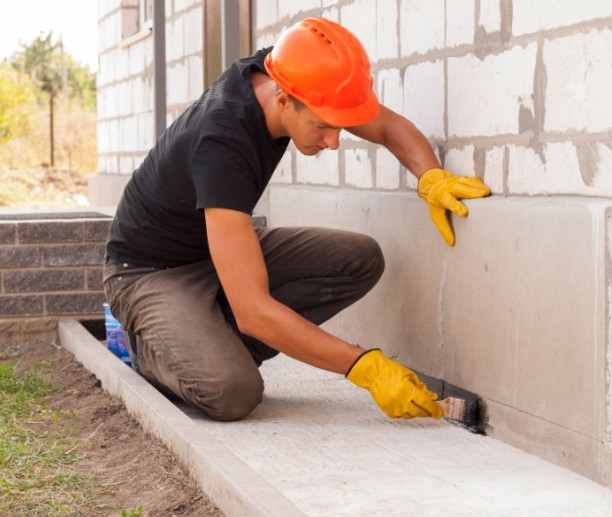
Foundation Repair Contractors Explain When It’s Time to Address Cracks
Cracks in your home’s foundation might seem small, but they can signal serious issues developing beneath the surface. While some cracks are harmless and purely cosmetic, others can lead to structural problems that affect your entire home. Knowing the difference—and acting at the right time—can save you from costly repairs later.
Foundation damage doesn’t happen overnight. It builds up slowly, often starting with small shifts in soil, temperature changes, or moisture buildup. These shifts create stress on your foundation, which can result in visible cracks on basement walls, slabs, or exterior brickwork. That’s why regular monitoring and early attention are so important.
According to experienced foundation repair contractors in St. Louis, ignoring cracks or waiting too long to act is one of the biggest mistakes homeowners make. Timely inspections and repairs can prevent bigger issues, protect your home’s value, and provide peace of mind.
Not All Cracks Are Equal
It’s easy to panic when you see a crack in your foundation, but not all are cause for concern. Professionals often look at a few key things when evaluating cracks:
- Width: Hairline cracks less than 1/8 inch wide are usually not urgent. Wider cracks can indicate movement or shifting.
- Direction: Vertical cracks may result from normal settling, while diagonal or horizontal cracks are more likely to point to structural issues.
- Length and pattern: Cracks that continue to grow or appear in a stair-step pattern in brickwork should be examined closely.
- Location: Cracks near doors, windows, or corners may show that the house is shifting unevenly.
Contractors recommend taking pictures of any cracks and tracking changes over time. If a crack grows or new ones appear, it’s time to get a professional opinion.
Common Causes of Foundation Cracks
Understanding why cracks form can help you know what to look for. Some of the most common causes include:
- Soil movement: Expansive soils expand with moisture and shrink when dry. This back-and-forth movement puts stress on the foundation.
- Poor drainage: Water that pools near the foundation can weaken the soil and cause shifting.
- Tree roots: Roots from large trees can push against your foundation over time.
- Plumbing leaks: A broken pipe under or near the home can soften the soil and lead to settlement.
- Construction flaws: Poor construction or subpar materials can lead to early signs of cracking.
Foundation repair contractors are trained to identify the source of the problem, not just the symptoms. This helps ensure the repair plan addresses the root cause, not just the visible damage.
When Should You Call a Foundation Repair Contractor?
While seeing small cracks in any home is normal, certain signs mean it’s time to bring in the experts. Here’s when you shouldn’t wait:
1. Cracks Are Wider Than 1/4 Inch
This often indicates more than just cosmetic wear. Cracks of this size can allow moisture or pests into your basement or crawl space.
2. Cracks Are Spreading or Changing Shape
If you notice a crack getting longer, wider, or showing gaps at the edges, it’s a sign that movement is still happening.
3. You Notice Uneven Floors or Sticking Doors
Foundation shifts can cause your floors to slope or your doors and windows to stick. These symptoms are often more reliable than visual cracks alone.
4. Water Is Entering Through Cracks
Any sign of water coming through foundation cracks is a major concern. Moisture can lead to mold, rot, and further structural weakening.
5. You’re Planning a Major Renovation
If you’re remodeling a kitchen or finishing a basement, it’s smart to make sure your foundation is stable first. An inspection will reveal any hidden issues before you invest in upgrades.
The Benefits of Early Foundation Repair
Foundation issues rarely get better on their own. The longer you wait, the more expensive and disruptive repairs can become. Addressing cracks early:
- Prevents damage from spreading
- Improves your home’s value and safety
- Protects your basement from water damage
- Provides peace of mind for future buyers
- Avoids larger repairs like wall replacement or house leveling
Foundation repair contractors also emphasize that early intervention often means smaller, less invasive repairs, like injecting sealants or installing piers in limited areas, rather than large-scale work.
What to Expect From a Foundation Inspection
If you’re unsure whether a crack needs attention, scheduling a professional inspection is the best first step. A contractor will:
- Examine the inside and outside of your home
- Measure cracks and monitor movement
- Check for moisture issues, drainage problems, or soil instability
- Recommend the best repair options if needed
Most inspections take less than two hours, giving you valuable information even if no repair is required.
Final Thoughts
Your foundation supports everything in your home, so it’s worth keeping an eye on. Small cracks might not seem urgent, but they can be early warning signs of deeper issues. Paying attention and calling in the experts at the right time can save you money and protect your home for the long haul.
If you’ve spotted cracks or noticed signs of shifting, St. Louis Foundation Repair & Waterproofing is here to help. Our experienced team of foundation repair contractors provides honest inspections, expert solutions, and peace of mind. Contact us today to schedule your evaluation and take the first step toward protecting your home’s foundation.

